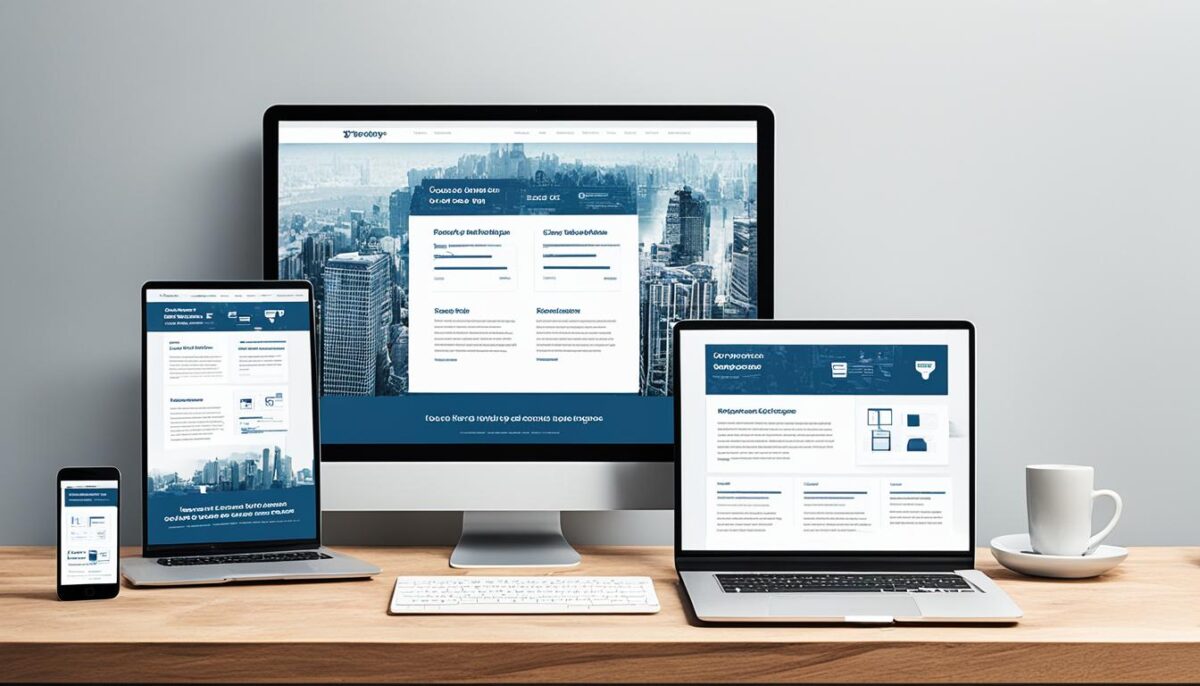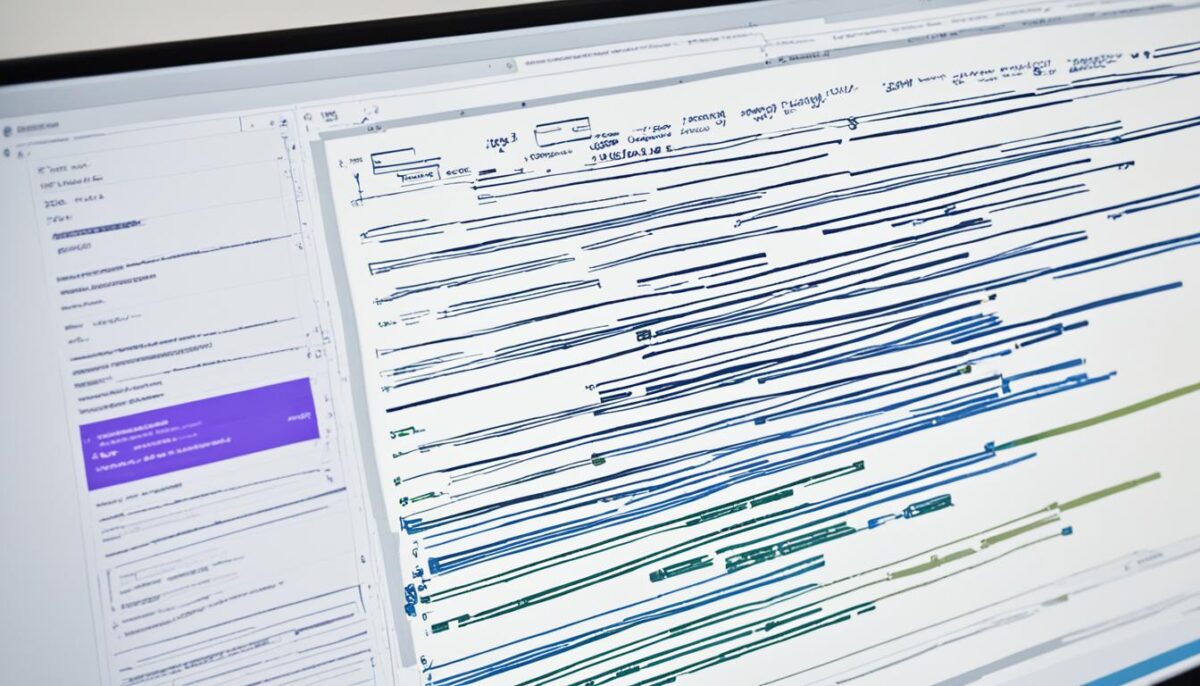In this digital age, having a well-designed and functional website is crucial for any business or individual looking to establish a strong online presence. However, one common question that arises when considering web development is: how much does it cost?
Understanding the rates charged by professionals in the industry can help you budget effectively for your online project. In this article, we will explore the average costs associated with web development and highlight what people typically charge to develop websites.
Whether you’re a small business owner, a startup entrepreneur, or someone looking to showcase your portfolio, knowing the general range of web development rates is essential. By having this knowledge, you can make informed decisions about your budget and find the right web developer for your specific needs and requirements.
So, join us as we dive into the fascinating world of web development rates and uncover the factors that influence pricing, different service pricing models, tips for choosing the right web developer within your budget, and strategies for balancing quality and cost.
Let’s begin our journey towards building a successful online presence!
Factors Affecting Web Development Rates
When it comes to web development rates, several factors come into play. These factors can significantly impact the price you’ll be charged for web development services. By understanding these influencing factors, you can gain clarity on the pricing structure and make informed decisions for your project.
Complexity of the Project
The complexity of your web development project plays a crucial role in determining the overall cost. Websites with intricate functionalities or unique design requirements typically require more time and effort to develop, resulting in higher development rates. On the other hand, simpler projects with basic functionalities may be more affordable.
Technologies Used
The technologies utilized in web development also affect the pricing. The use of advanced frameworks, content management systems, and programming languages may require additional expertise, increasing the development costs. Additionally, the integration of third-party plugins or APIs can impact the complexity and, consequently, the rates.
Level of Customization
The level of customization required for your website can influence the rates charged. Websites that demand extensive customization, unique design elements, and tailored functionalities often require more time and effort, resulting in higher costs. Pre-designed templates or ready-made solutions, on the other hand, may offer a more budget-friendly option.
Project Timeline
The urgency of your project can impact web development rates. Tight deadlines may require developers to allocate additional resources or adjust their schedules, potentially affecting the pricing. Planning your project in advance and allowing ample time for development can help you avoid rushed timelines and potential budget overruns.
To give you a visual representation of the factors affecting web development rates, refer to the table below:
By considering these factors and understanding their impact on web development rates, you can effectively manage your budget and ensure a successful website development process.
Different Service Pricing Models
When it comes to web development, understanding the different pricing models used by web developers is crucial. As you embark on your project, it’s important to consider whether an hourly rate or a fixed price is the better option for you.
The Hourly Rate Model
The hourly rate model is widely used in the web development industry. With this model, developers charge clients based on the number of hours spent working on the project. The hourly rate may vary depending on factors such as experience, expertise, and location.
One of the main advantages of the hourly rate model is flexibility. It allows for adjustments and modifications throughout the development process, accommodating any changes or unforeseen challenges that may arise. This provides a sense of control and allows for a more collaborative approach between the client and the developer.
On the other hand, the hourly rate model can be unpredictable in terms of cost. If the project takes longer than expected, the overall price may exceed the initial estimate. Additionally, hourly rates can vary significantly, leading to potential cost discrepancies among developers. It’s crucial to establish a clear understanding with your web developer about the estimated time required for completion and the hourly rate.
The Fixed Price Model
The fixed price model, as the name suggests, involves developers providing a fixed cost for the entire project or specific deliverables. This model is often preferred for well-defined projects with clear requirements and objectives.
One of the main advantages of the fixed price model is predictability. Clients know exactly how much they will be paying for the project upfront, making budgeting easier. Additionally, it incentivizes developers to deliver the project within the agreed-upon time and budget.
However, the fixed price model may not be suitable for projects that require flexibility or may undergo significant changes throughout the development process. Any additional requests or modifications outside the scope of the initial agreement may incur extra costs. It’s important to thoroughly discuss and define the project scope with your developer to avoid any misunderstandings in terms of deliverables.
Choosing the right pricing model for your web development project depends on the specific requirements, scope, and budget. Both the hourly rate and fixed price models have their advantages and disadvantages. Consider your project’s complexity, anticipated changes, and level of flexibility needed when making a decision. Consulting with a professional web developer can provide valuable insights and help you make an informed choice.
How to Choose the Right Web Developer for Your Budget
When it comes to choosing a web developer for your project, finding the right balance between affordability and quality is essential. You want to work with a skilled professional who can bring your vision to life while staying within your budget. To make an informed decision, consider the following steps:
Evaluate Portfolios
Start by evaluating the portfolios of potential web developers. Look for examples of their previous work to get a sense of their style, expertise, and attention to detail. A strong portfolio demonstrates their ability to create visually appealing and functional websites.
Check Client Reviews
Client reviews are valuable sources of information when selecting a web developer. Look for testimonials or feedback from previous clients to get an idea of their satisfaction with the developer’s work. Positive reviews indicate reliability, professionalism, and the developer’s ability to meet project expectations.
Compare Quotes
Obtain quotes from multiple web developers and compare them. Consider the services included in each quote, such as design, development, and ongoing support. Look for transparency in pricing, making sure there are no hidden costs that could potentially inflate your budget.
By following these steps, you can confidently choose a web developer who not only meets your budgetary requirements but also delivers a high-quality website.

| Factors to Consider | Affordable Web Development Services |
|---|---|
| Experience | Look for a developer with sufficient experience in creating websites similar to your needs. |
| Communication | Choose a developer who communicates effectively to understand your requirements and provide updates throughout the project. |
| Technical Skills | Ensure the developer has a strong technical skill set and is well-versed in the latest web development technologies. |
| Flexibility | Find a developer who is willing to work with your budget constraints and offers flexible payment options. |
| Support | Consider post-development support, such as maintenance and updates, to ensure long-term affordability. |
Balancing Quality and Cost in Web Development
When it comes to web development, achieving a high-quality website within your budget can be a challenging task. Balancing quality and cost is a common dilemma that many individuals and businesses face. However, with the right approach and strategic decision-making, it is possible to find affordable website development without compromising on quality.
One effective strategy to achieve this balance is to prioritize your requirements. Identify the essential features and functionalities your website needs to have, and focus on those aspects. By highlighting what truly matters for your website’s success, you can allocate your budget accordingly and ensure that key elements are delivered to the highest standard.
Another approach is to consider the long-term costs and benefits. While it may be tempting to opt for the cheapest development option upfront, it’s essential to evaluate the potential long-term expenses that may arise from poor quality work. Investing in a high-quality website development may result in fewer maintenance and update costs down the line, ultimately saving you money in the long run.
“Quality is remembered long after the price is forgotten.”
Furthermore, it’s crucial to do thorough research and find a web development provider that offers a balance between quality and cost. Take the time to review their portfolio, check client reviews, and request quotes from multiple professionals. This will allow you to compare the level of quality they offer against the cost, helping you make an informed decision that aligns with your budget.
Remember, affordable website development doesn’t always mean compromising on quality. By prioritizing your requirements, considering long-term costs, and conducting extensive research, you can strike the right balance and create a high-quality website that meets your budget limitations.
Tips for Balancing Quality and Cost in Web Development:
- Clearly define your project requirements and prioritize the essential features.
- Consider the long-term costs and benefits of investing in quality.
- Thoroughly research web development providers, reviewing portfolios and client testimonials.
- Request quotes from multiple professionals to compare quality and cost.
- Communicate your budget limitations and negotiate pricing where possible.
| Factors | Quality | Cost |
|---|---|---|
| Expertise and Experience of the Developer | Highly skilled developers with extensive experience can deliver a superior quality website. | Experienced developers typically charge higher rates, increasing the cost of development. |
| Complexity of the Project | Complex projects require more time and effort to deliver a high-quality result. | Increased complexity can lead to higher development costs. |
| Customization and Tailored Solutions | Customized solutions often result in a higher quality website that perfectly meets your specific needs. | Developing tailored solutions can increase the overall cost, depending on the extent of customization required. |
| Technologies Used | The use of modern, advanced technologies can contribute to a high-quality website. | The implementation of cutting-edge technologies may require additional investments. |
Additional Cost Considerations in Web Development
When it comes to web development projects, it’s important to consider the additional costs that may come along the way. These hidden expenses can impact your budget and planning. By understanding and accounting for these costs upfront, you can ensure that your web development project stays within your financial expectations.
Here are some of the common additional costs to consider:
- Domain Registration: Registering a domain name for your website is an essential step. Depending on the domain extension and the registrar you choose, the cost can vary. Be sure to research domain registration fees and factor them into your budget.
- Hosting Fees: Every website needs a hosting provider to make it accessible on the internet. Hosting fees can vary depending on factors such as the hosting type, storage space, bandwidth, and additional features. It’s crucial to choose a reliable hosting provider that fits your budget.
- Ongoing Maintenance: Websites require regular maintenance to ensure they function properly and remain secure. Consider the cost of potential updates, security measures, backups, and bug fixing. Budgeting for ongoing maintenance will help you avoid unexpected expenses down the road.
- Upgrades and Enhancements: As your website grows, you may want to add new features, redesign certain sections, or enhance its functionality. These upgrades and enhancements may involve additional costs, such as hiring a web developer or purchasing premium plugins or templates.
By taking these additional costs into account, you can better estimate the total investment required for your web development project. It’s essential to plan ahead and ensure that you have a realistic budget that considers not only the upfront development cost but also these ongoing and hidden expenses.
Negotiating Web Development Rates
When it comes to web development, negotiating rates can be a crucial step in getting the best deal for your budget. Whether you’re a business owner or an individual looking to create a website, understanding the art of negotiation can save you money while still maintaining quality.
Effective communication is key in negotiations. Clearly outline your project requirements, budget, and desired timeline to the web developer. By having a clear understanding of your expectations, the developer can tailor their pricing to suit your specific needs.
Flexibility is another essential aspect of successful negotiations. Be open to compromises and willing to explore different options. For instance, if the initial quote is beyond your budget, ask the developer if there are any services or features that can be excluded or simplified to reduce costs without compromising the overall quality of the website.
Additionally, it’s worth considering cost-saving opportunities. Ask the developer if there are any discounts available for paying in full upfront or bundling multiple services together. Sometimes, developers may offer reduced rates for longer-term projects or referrals, so don’t be afraid to inquire about such incentives.



